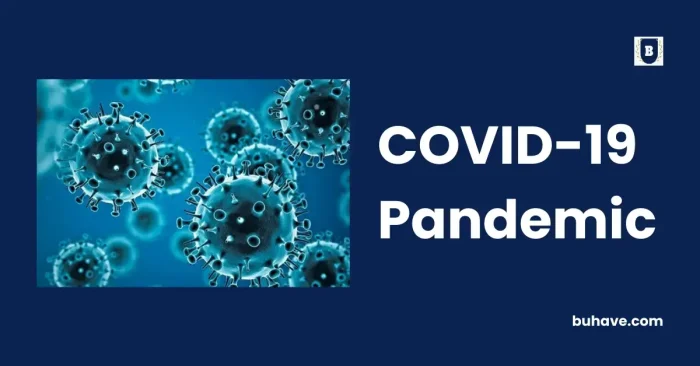Just like other industries, the medical industry is also evolving at a very fast speed. Like other industries, the medical industry also depends on the people in it.
Various reports prove that efficient and strong medical teams are behind the better quality service delivery in the health sector.
Also, weak medical teams are the reason for various medical errors that patients suffer.
That is why today focuses on making medical teams strong and efficient. In this article, we are going to discuss some of the useful insights for the same.
Why Strong Teams Are Needed In Medical Industry
It is already noted above that strong medical teams are essential in the health sector. However, there are more reasons for strong medical teams.
The pressure on the medical sector is increasing. Professional doctors, medical practitioners, and other nursing staff have become important components of the organization set up.
And that is where the need for a strong team arises. Why? Because a strong team will result in satisfactory medical services and errors in services and can lead to severe loss to patients too.
Conversely, a strong medical team fosters quality health services to patients and increases the organization’s overall productivity. It will also enhance patient outcomes and mobility in the organization.
A strong and efficient medical team in a health institution is a must for improving morale. It helps in increasing human capital. Strong medical teams can work toward increasing patient satisfaction by reducing medical errors.
Moreover, a strong medical team is directly related to the well-being of society and thus plays a pivotal role.
Set Goals
Now we know that a strong medical team is the backbone of any health organization and even of the entire medical sector. So what comes next is the measure to get strong medical teams onboard in order to have fewer medical errors and increased productivity.
It all starts with the setting of goals which is a two-fold thing. For instance, in this case, a health institution will set a goal for the entire organization and for several medical teams.
Team-oriented goals are important for strong medical teams. However, at the same time, these goals need to be focused on patients too.
As patients are the ones who stand at the other end, their satisfaction should be the priority while setting goals. These goals must be realistic, and every team member has to follow them.
Only then will an efficient and strong medical team form and contribute to society.
Work On Leadership
We can’t afford to miss the discussion of team leaders when we are talking about teams. A team is nothing without its leader, who guides it throughout the processes.
Also, it is a team leader only who sets the goal and makes the team understand its value. With that, he discusses with his team how to achieve the goals effectively.
A team leader in the medical industry should be skilled and experienced enough to handle all sorts of situations. In some cases, it is possible that because of a lack of experience, a team member can make a mistake.
Then a team leader must guide that member and make him learn things. A perfect team leader always keeps him updated with current concerns in the sector.
He should also be encouraging and innovative and know how to teach his team members new things easily and effectively.
Team leaders can make use of practice management solutions to impart better results.
Mark The Standards
For any organization, its standards define it in front of others. The same goes for a medical organization; it also has to set standards.
When an organization defines its standards beforehand, it helps in various things. When medical teams know what to follow, there is less room left for medical errors.
Also, it will deliver quality medical services on time and prevent resource wastage. It will increase patient satisfaction and maximize human capital. However, the secondary but important approach is growth.
When a health institution defines its goals and standards that are both qualitative and quantitative, it will help in better performance of the medical teams.
Build Strong Communication Network
When a medical organization is huge, with several departments and numerous teams, it is important to work on communication. When there is a lack of communication especially related to patient information.
In such cases, a lot of misunderstanding and conflict happens because of a lack of communication.
Effective and quick communication can prevent a lot of patient mortalities that happen just because of ineffective communication. It can also augment patient satisfaction and deliver the best quality services.
Team leaders can teach their team members how to enhance team communication and implementation. Teaching some theories is one thing, and using that in daily life is another.
So team leaders must ensure that their team is well equipped with communication knowledge and has enough training to implement that in real-life cases. For this, a medical team can use advanced and various kinds of communication sources and mediums.
A Culture Of Trust And Respect
The medical sector is a field that relies on mutual trust and respect for each other. This goes for the team members as well as for the patients.
The sector leaders must establish and maintain trust between their team members and patients. Also, there has to be mutual respect among all the team members.
This will happen when both parties, medical team members and patients will, feel respected and valuable to each other.
For this, a two–way conversation is required where leaders can connect both parties with their excellent communication skills. In this environment, medical team members can work better together and derive true understanding.
When all the team members respect each other, they will listen to each other and will work together to achieve the set goals.
Specific Roles For Everyone
In the medical sector, it is foolish to think that one man can do everything. In this field, if, on the one hand, an experienced and skilled doctor is necessary, then on the other medical practitioners and nursing staff are equally important.
A medical team that consists of all these personnel has to define specific roles for all the team members. When everyone’s roles are clearly stated, they can work better together.
Also, when there is the mutual respect in the team, they will respect each other’s roles and responsibilities. And in some cases, they will try to perform their roles excellently while helping with their duties.
This will build a healthy environment in the organization and foster better performance on the medical team.
Team Integration
With mutual understanding and respect, another thing that medical teams need the most is team integration.
In a medical organization, there are various departments and various teams under them. Like other sorts of integration, team integration means a better understanding of each other’s roles and responsibilities.
In a single team, all the members may have come from different work cultures and have their own ethics. They have their distinct experiences and backgrounds.
That is why the team leader must understand the differences among the team members. And then work towards handling these differences so that everyone can use the experience he or she has acquired as well to learn new things.
It will also include helping other team members with tasks and building a strong medical team.
Appropriate Environment
For a strong medical team to grow, an appropriate environment is needed. It is also necessary to have a culture where they are curious to know more.
A team leader will let his medical team become curious about things done efficiently and effectively and how they can increase patient satisfaction. Also, he will encourage his team to make decisions and try something innovative.
With curing patients, the medical field is also about learning new things every day. So a team leader develops an environment where his team members can get to know new things and apply them.
This will have a multidimensional effect on patients and the organization. A strong medical team that works in a healthy environment will contribute to human capital, positive patient outcomes, and increased patient satisfaction.
Conclusion
Medical administration is like a sector evolving at a very fast pace. The reason behind this is the steep rise in patients and their demand for quality medical services.
Now medical organizations have become more systematic, organized, and large. That has also increased the scope for medical errors and ultimately led to patient mortalities.
The only way to handle this situation is by making medical teams strong and efficient.
Only when a strong medical team handles the organization as well as patients will it fetch desired outcomes?
A strong medical team can bring valuable patient outcomes and maximize satisfaction. While medical institutions will work for increased productivity, mobility, increased human capital, and growth for all.
– If you are looking for guest posts in health “write for us” now.

















